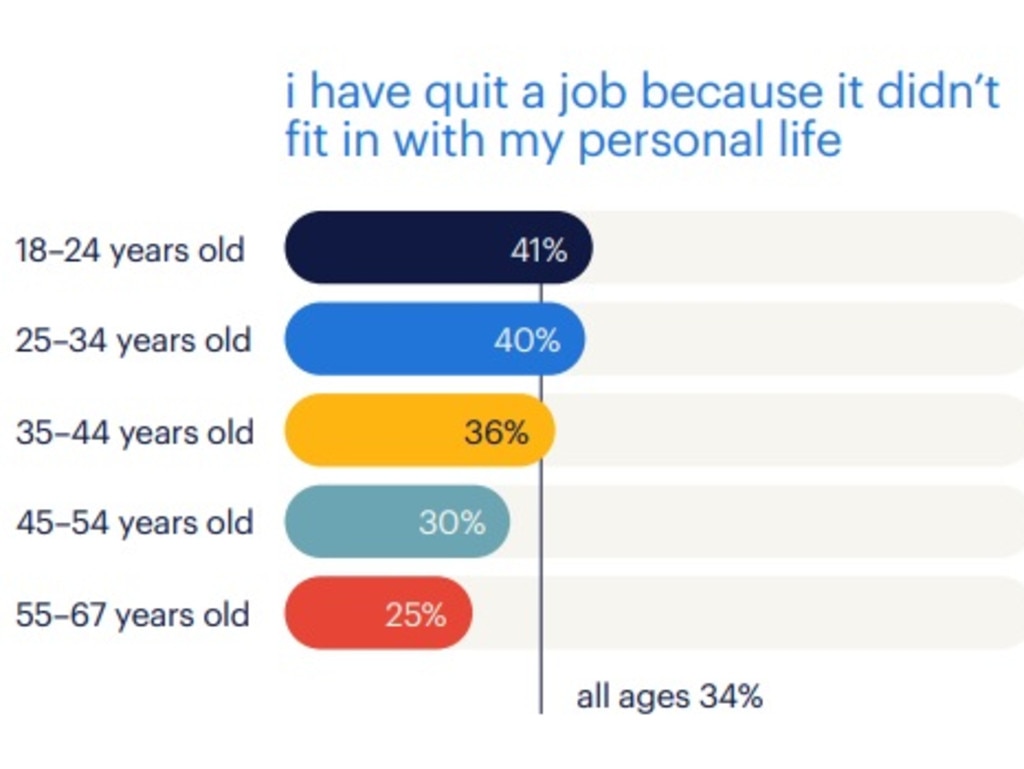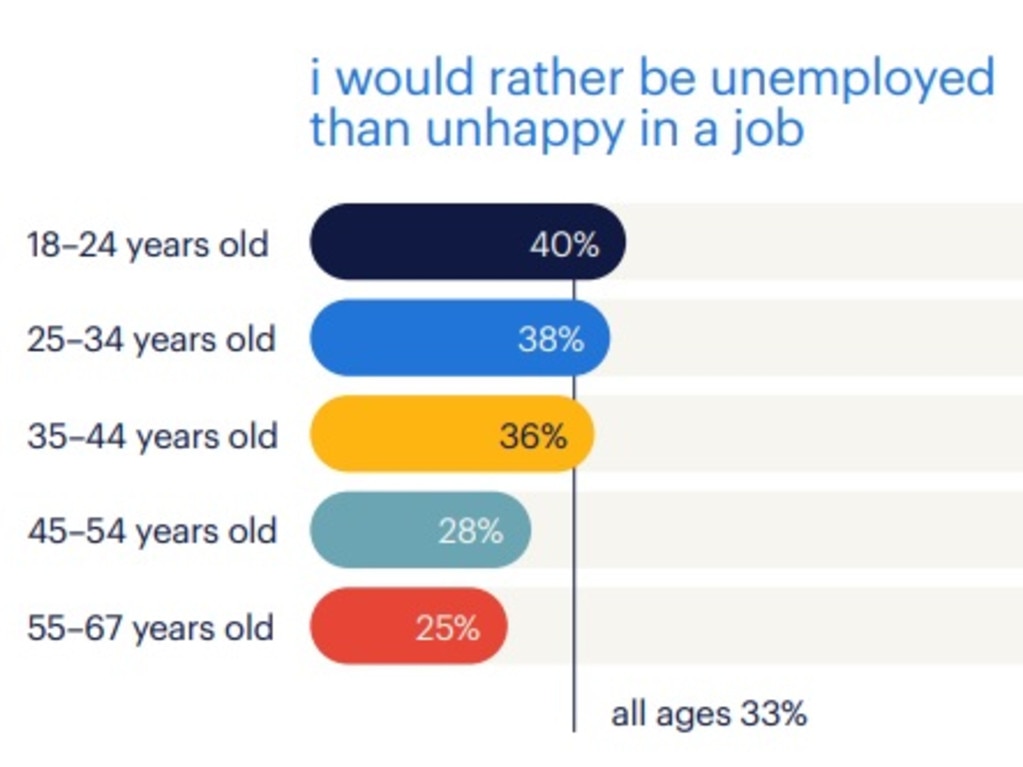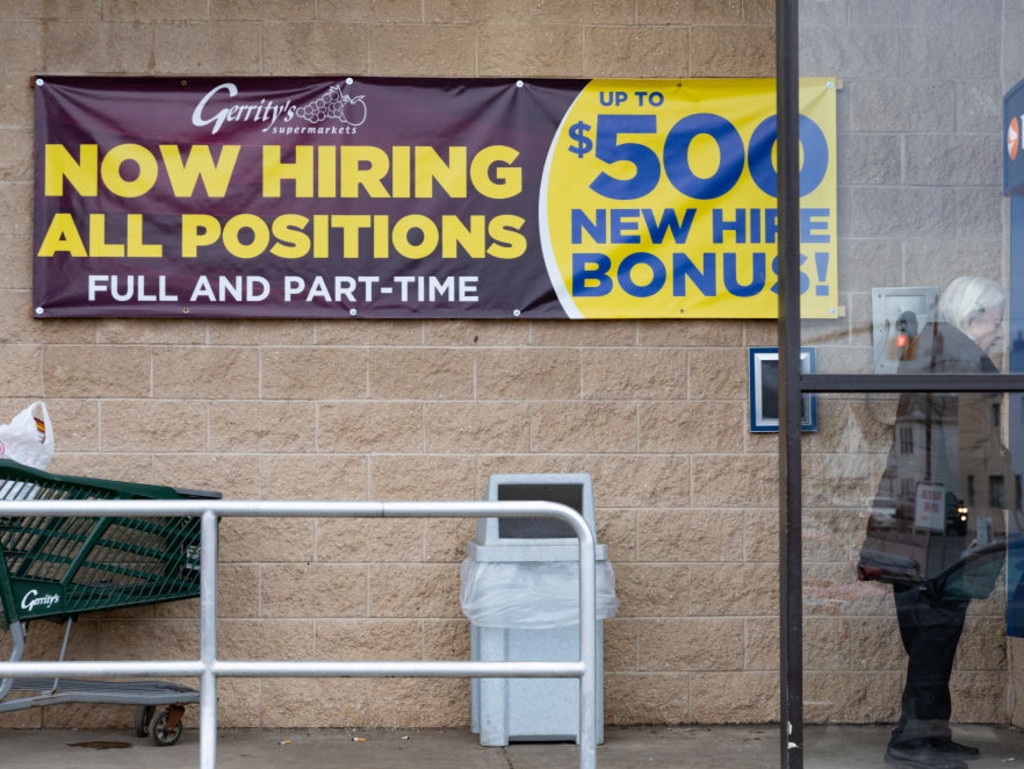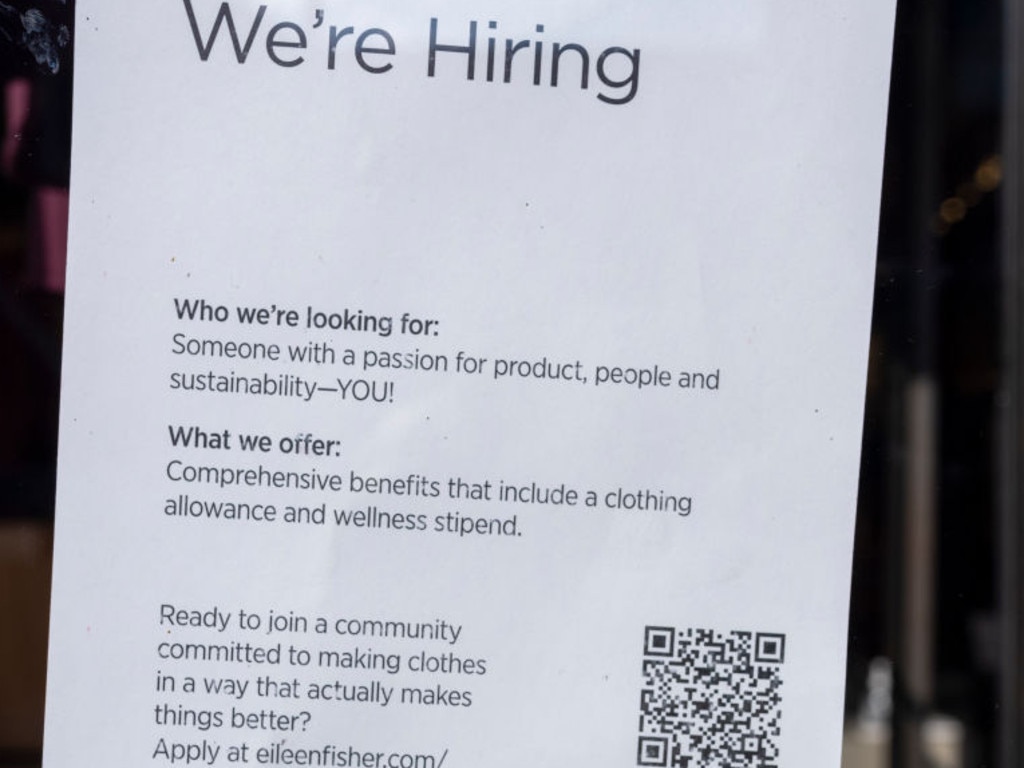Great Resignation: Majority of under-35s would quit if their job stops them ‘enjoying life’
More than half of under-35s say they would quit work if their job stops them “enjoying life”, as the Great Resignation shows no signs of slowing.
More than half of under-35s say they would quit if their job stops them “enjoying life”, according to a major new survey which suggests the “Great Resignation” shows no signs of slowing.
Randstad’s latest Workmonitor study, which polled 35,000 employees across 34 countries including Australia – billed as one of the largest studies of its kind – found that young people showed the strongest desire to align work with their personal desires.
“As we recover from the pandemic, one thing is clear in the world of work – the dynamic between talent and employers has shifted,” Randstad chief executive Sander van ’t Noordende writes in the report.
“A heightened sense of purpose now guides people’s career choices and the work that they do. Our latest research reaffirms such sentiments. This is especially true for those under 35, with a majority saying they would quit if their job prevented them from enjoying life.
“Most respondents across all age groups also said their personal life is more important than their work life. Happiness at work is a priority for many people in the post-pandemic age – they want their values reflected in the mission of their company and leaders.”
He added it was “not surprising that Gen Z and Millennials are the ones leading the charge for a new social contract with employers, as they are often on the forefront of societal change”.


The Great Resignation began last year, where record numbers of workers have left their jobs, particularly in the United States.
And the survey found it hasn’t slowed, with one-third of respondents “saying that they have quit a job because it didn’t fit within their personal lives”.
“Among those 35 and younger, that figure was more than 40 per cent,” the report said.
Gen X sat just below the overall average at 30 per cent, while Baby Boomers were lower still at 25 per cent.
“And in a sign of growing interest in social causes, 41 per cent said that they wouldn’t accept a job with an employer unwilling to make efforts to improve their diversity and equity record – with about half of those 18-24 feeling this way.”
While 56 per cent of Gen Z and 55 per cent of Millennials would quit their job if it was preventing them from enjoying life, that number was only 38 per cent for Baby Boomers.
Around 40 per cent of under-35s wouldn’t mind earning less money if they felt their job was contributing something to the world or society, compared with only one-quarter of Baby Boomers.

“There’s a clear power shift under way in offices around the globe, including Australia, driven by a workforce still recovering from the pandemic,” Randstad Australia and New Zealand CEO Nick Pesch said in a statement.
“Many workers are rethinking priorities and choosing to focus on personal fulfilment. They are no longer afraid to move on from roles that don’t align with their values. Amid ongoing critical talent shortages, businesses need to rethink their approach to attracting and retaining staff.”
Results in Australia varied slightly from the global trends.
Notably, only 26 per cent of Australian workers said they had quit a job because it didn’t fit in with their personal life, compared with 34 per cent globally.
That roughly tracks with research from National Australia Bank in February, which found one in five Aussies changed their jobs last year and one-quarter were currently considering leaving their workplace.
Experts have previously suggested that predictions of a Great Resignation in Australia are overblown.
“The issue here is not so much a Great Resignation, but how to deal with a Great Resistance to the idea of returning to the office, and the daily commute,” Mark Wooden and Peter Gahan from the University of Melbourne wrote for The Conversation in November.

In the Randstad survey, Aussies were more likely to dream of a life of leisure – 57 per cent said they would choose not to work at all if money was no object, compared with 48 per cent globally.
Australians were also twice as likely to turn their nose up at workplace advancement, with 24 per cent saying they were not interested in any learning and development opportunities, versus 12 per cent globally.
Conversely, training and development opportunities were cited as the second most important quality Australians were looking for in a job (72 per cent), with work-life balance the most important (95 per cent).
Australia’s unemployment rate in February dropped to 4 per cent for the first time since 2008.
Over the course of the month, full-time employment increased by 77,000 people and unemployment fell by 19,000 according to the Australian Bureau of Statistics.
In the US, the number of job openings in February reached 11.3 million, little changed from December’s 11.4 million, according to the US Bureau of Labor Statistics.
More Coverage
Some 4.4 million people, or 2.9 per cent of workers quit their jobs in February, up slightly from 4.3 million in January but down from November 2021’s record of 4.5 million.
Resignations increased in retail trade (+74,000), durable goods manufacturing (+22,000) and state and local government education (+14,000), while decreasing in finance and insurance (-30,000).






